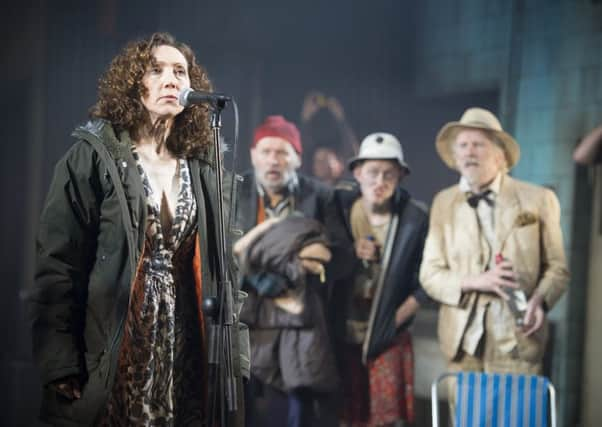Theatre review: This Restless House, Citz, Glasgow


This Restless House | Rating: ***** | Citz, Glasgow
The exception is the younger daughter, in the middle, clear as a bell staring straight at the camera; and it’s a picture that tells a powerful story about the perspective, and the gaze, of Harris’s mighty new female reworking of the Oresteia, Aeschylus’s 2,500-year-old three-part drama about the troubled royal household of Argos.
As in Aeschylus’s original, the King, Agamemnon, returns victorious from Troy to confront the fury of his wife Clytemnestra, who is outraged at his sacrifice of their eldest daughter to ensure his victory; as in the original, Clytemnestra’s bloody murder of Agamemnon leads to her own death at the hands of her children, Orestes and Electra, who in turn have to face the furies aroused by this act of matricide.
Advertisement
Hide AdIn Harris’s version, though – co-produced by the Citizens’ and the National Theatre of Scotland – the focus is resolutely on the experience of the two key female characters, Clytemnestra and Electra, who emerge as stunning female archetypes for our time. Pauline Knowles’s Clytemnestra is furious, loving, glamorous, intensely sexual, maternal yet utterly imperfect, sometimes drunk; Olivia Morgan’s Electra is a shockingly abandoned victim of the war between her parents, a small, strong figure whose pain, and conviction that she can never escape the furies pursuing her, seem as much at home in the mental hospital ward of the final play, as pouring libations beside her father’s grave in Argos.
Set on designer Colin Richmond’s shape-shifting stage, lDominic Hill’s often breathtaking four-hour production – played out over two evenings – therefore seems to take place everywhere and nowhere, flipping in a second, under Ben Ormerod’s superb lighting, from the royal palace of Argos to the depths of hell, or the howling interior of agonised minds.
For all the horror and bleakness, though, there’s never any doubt about the thrilling momentum of Aeschylus’s mighty story. George Anton is a tremendous Agamemnon, big, beautiful and flawed. Itxaso Moreno and Anita Vettesse offer heart-stopping support in a range of vital female roles.
And of course, in Harris’s trail-blazing 21st century adaptation, there can be no patriarchal ending like the one Aeschylus proposes. Yet Harris’s final scene has its own immense civilisational weight; suggesting from a last, immensely poignant female perspective that all the gods and demons that drive old cycles of violence are of our own making, and that if we have the courage to invite our personal furies in then we can find peace, and the simplicity of the child who only wants to feel the joy of being alive.